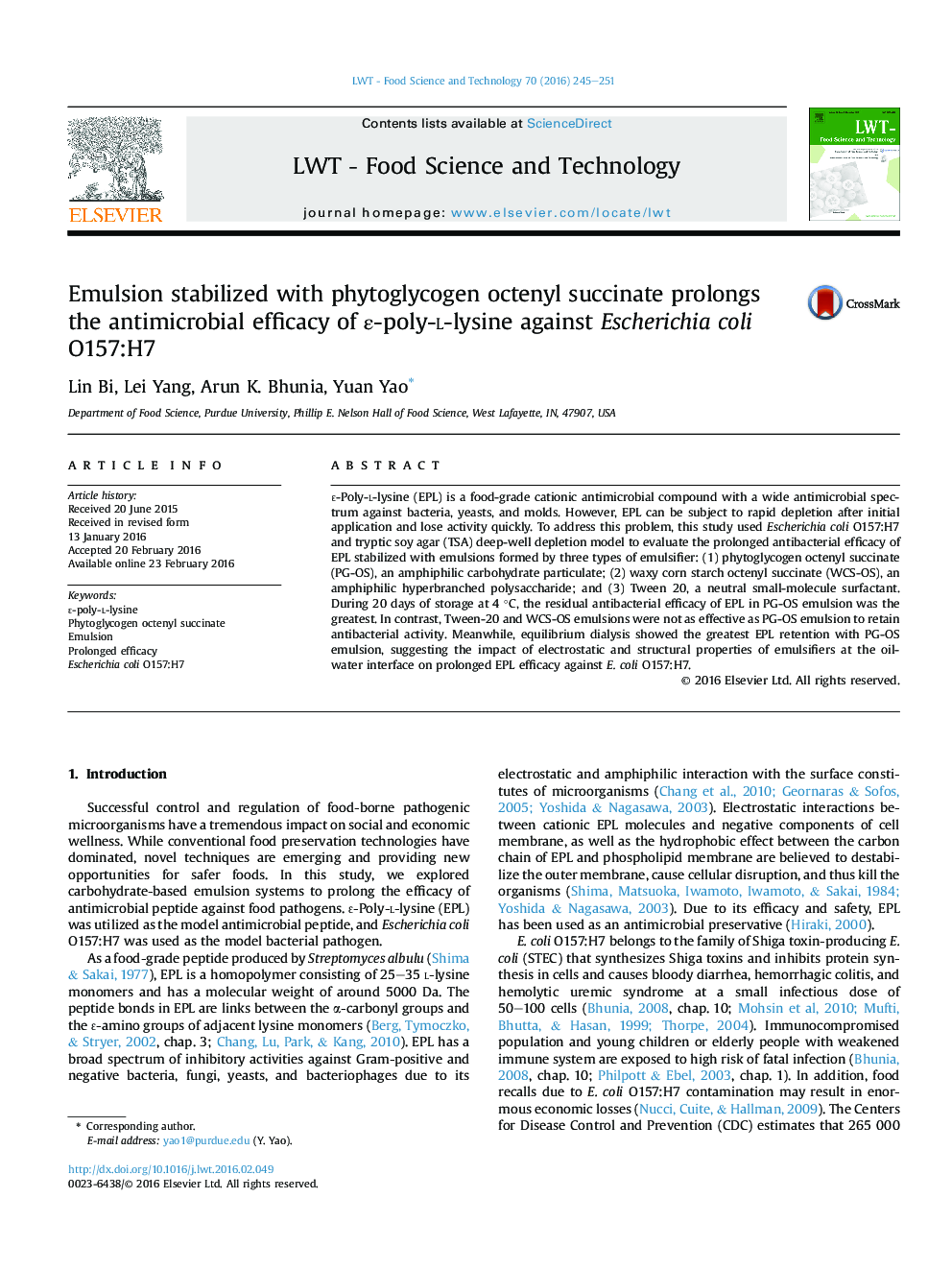| Article ID | Journal | Published Year | Pages | File Type |
|---|---|---|---|---|
| 4563592 | LWT - Food Science and Technology | 2016 | 7 Pages |
•The antimicrobial efficacy of ε-poly-l-lysine (EPL) decreased in the depletion model.•The efficacy of EPL was substantially retained in the emulsion formed with phytoglycogen octenyl succinate (PG-OS).•EPL alone and EPL in Tween-20 emulsion lost antimicrobial activity quickly.•Equilibrium dialysis can be used to evaluate the availability of EPL in a delivery system.
ɛ-Poly-l-lysine (EPL) is a food-grade cationic antimicrobial compound with a wide antimicrobial spectrum against bacteria, yeasts, and molds. However, EPL can be subject to rapid depletion after initial application and lose activity quickly. To address this problem, this study used Escherichia coli O157:H7 and tryptic soy agar (TSA) deep-well depletion model to evaluate the prolonged antibacterial efficacy of EPL stabilized with emulsions formed by three types of emulsifier: (1) phytoglycogen octenyl succinate (PG-OS), an amphiphilic carbohydrate particulate; (2) waxy corn starch octenyl succinate (WCS-OS), an amphiphilic hyperbranched polysaccharide; and (3) Tween 20, a neutral small-molecule surfactant. During 20 days of storage at 4 °C, the residual antibacterial efficacy of EPL in PG-OS emulsion was the greatest. In contrast, Tween-20 and WCS-OS emulsions were not as effective as PG-OS emulsion to retain antibacterial activity. Meanwhile, equilibrium dialysis showed the greatest EPL retention with PG-OS emulsion, suggesting the impact of electrostatic and structural properties of emulsifiers at the oil-water interface on prolonged EPL efficacy against E. coli O157:H7.
